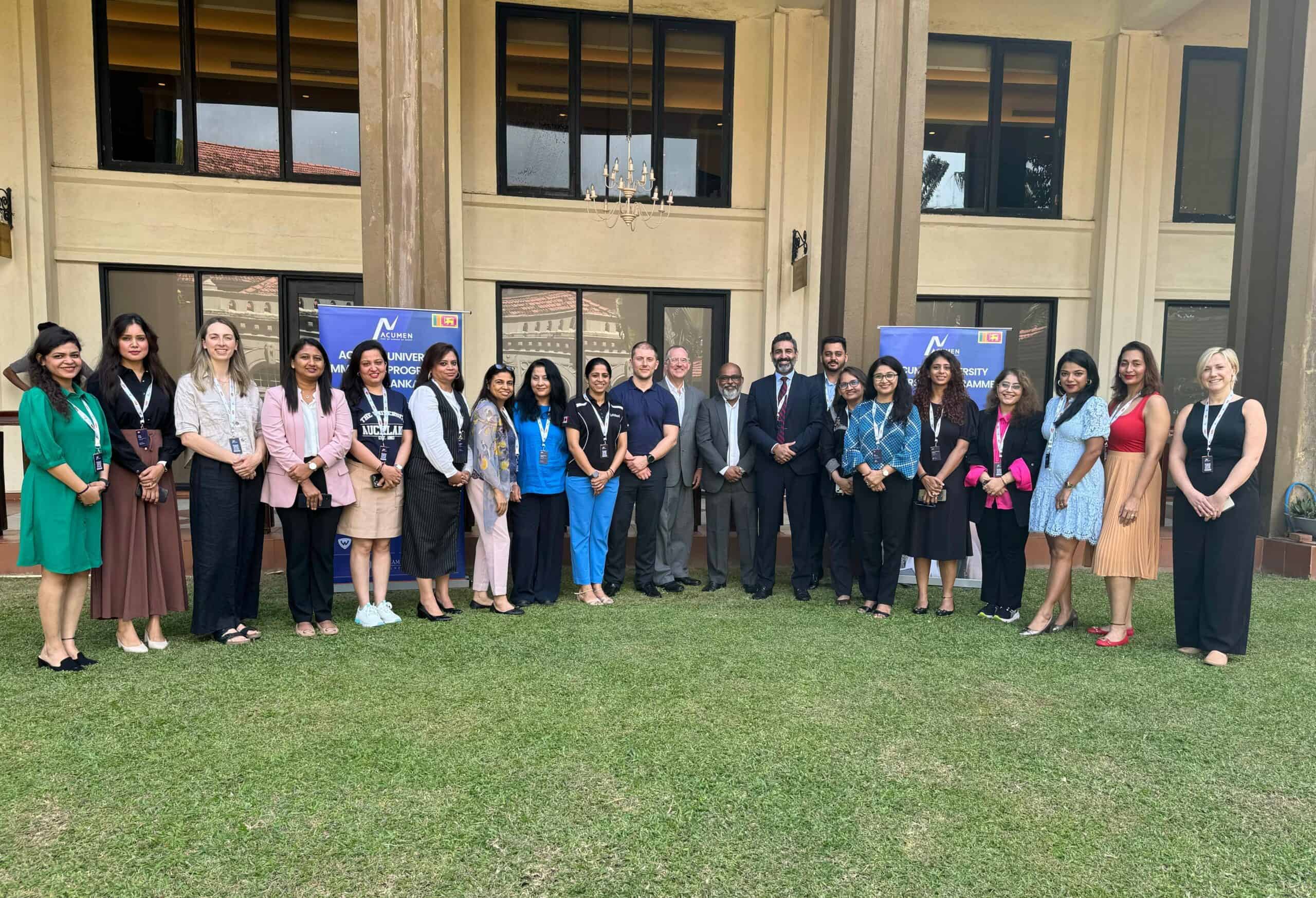According to a report by the British Council, while 171,532 students in Sri Lanka qualified for university education in 2022, state universities had a limited capacity of 44,000 spots.
It opens up opportunities for institutions to fill that gap through private education and TNE in the South Asian country.
A delegation of universities across the UK, US, New Zealand, and Canada are participating in the University Immersive Programme organised by Acumen in Sri Lanka.
Fifteen institutions, including City, University of London, University of Exeter, Cardiff University, University of Auckland, Wayne State University, and Ontario Tech University, are a part of the contingent led by Acumen.
The program, which is being held between September 26 and September 27, is intended to create long-term partnerships between the delegation and local universities, schools, government bodies, and education agents across Sri Lanka.
The discussions between them are aimed at creating opportunities for student mobility, academic collaboration and joint research initiatives, according to Sagar Bahadur, executive director, India, South Asia, and Southeast Asia, Acumen.
“Sri Lanka’s higher education landscape is on the cusp of significant growth across multiple areas, including increased student recruitment, the opening of international branch campuses, and expanded engagement with schools,” Bahadur told The PIE News.
“I’m especially happy to see the openness from Sri Lanka across the government, institutions, schools, and all stakeholders, who have shown great enthusiasm in welcoming and engaging with our delegation.”
Some of Sri Lanka’s key educational bodies and institutions, including the University Grants Commission, Ladies College, Ananda College, Colombo International School, NIBM, and SLIIT, are attending sessions and visits with the delegation.
Sri Lanka’s higher education landscape is on the cusp of significant growth across multiple areas
Sagar Bahadur, Acumen
Though Sri Lanka is home to 47 government-approved public and private institutions, limited capacity has led to many of them adopting internationalisation as a key source of revenue.
Moreover, the University of Sri Jayewardenepura presented a national strategic plan draft, under the direction of the parliament on August 24, with internationalisation and attracting international students being key proposals.
As per data shared by Acumen, annually over 60,000 students enrol in various programs, many through TNE, offered by private institutions in Sri Lanka.
With a private education market valued at $1.1 billion, the country is ready to establish itself as a global education hub.
“Sri Lanka’s higher education landscape is transforming, showcasing an inviting environment for collaboration,” said Kenneth Fleming, director, global education, Sri Lanka Institute of Information Technology.
“With bold initiatives and a commitment to international partnerships, the country is rapidly establishing itself as a dynamic hub for global academic excellence and innovation.”
“Sri Lanka stands at the crossroads of the Asia-Pacific, a mere five-hour flight from half the world’s population of 4.5bn people,” stated Kandeban Balendran, co-founder and CEO, Academics Group, an education think tank based in Colombo.
“This strategic position, coupled with its rich cultural heritage, positions Sri Lanka as an ideal hub for dialogue and action.”
Sri Lanka’s TNE journey has advanced over the years, with the government promoting international degree programs and branch campuses.
International universities have been encouraged to open campuses offering business, finance, IT, engineering, and medicine in the Port City Colombo, an upcoming special economic zone in the country.
Apart from IBCs, other aspects of Sri Lankan TNE include franchise programs, articulation agreements, validated programs, and dual and joint degrees.
Though Sri Lanka does not have an international branch campus from a UK university, 44 UK institutions have formal TNE partnerships in the country as of 2022/23.
Additionally, Sri Lanka has emerged as the second-largest host country of UK TNE students, accounting for 10% of all such enrolments globally, with a 50% increase in enrolments, totalling 53,915.
Capitalising on this surge, UK universities are heading to Sri Lanka to gain more insights into the country’s higher education market.
“I’m excited to be representing the University of Exeter on this Acumen programme in Sri Lanka, getting expert market insight, sharing our UG portfolio with top schools in Colombo, and exploring opportunities with renowned higher education institutes,” said Amy Williams, regional manager (South Asia), University of Exeter.
“Transnational education is taking off in Sri Lanka, giving students incredible access to global learning right at home,” stated Annette Sebastian, senior recruitment advisor, South Asia, Aberystwyth University.
Australia is another country that has heavily invested in the island nation’s TNE landscape.
According to Acumen, Australian TNE enrolments in Sri Lanka reached 3,145 in 2022, a three-fold increase since 2018.
With 22 universities down under engaging in educational activities in Sri Lanka, the country is also home to two major branch campuses in Colombo, Curtin University and Edith Cowan University.
Courses such as business management, MBA, engineering, data science, hospitality, law, and biomedical science are some of the in-demand TNE programs that the US, Canadian, and New Zealand universities are prepared to cater to.
“As part of this mission, UOA aims to not only grow recruitment pathways but also explore partnership opportunities, and contribute to New Zealand’s growing presence in Sri Lanka’s education sector,” said Amita Gejji, international manager, South Asia, University of Auckland.
“By participating, UOA is leading New Zealand’s efforts to expand its influence and collaboration within the Sri Lankan market.”
#Sri #Lankas #TNE #opportunities #attract #international #universities










